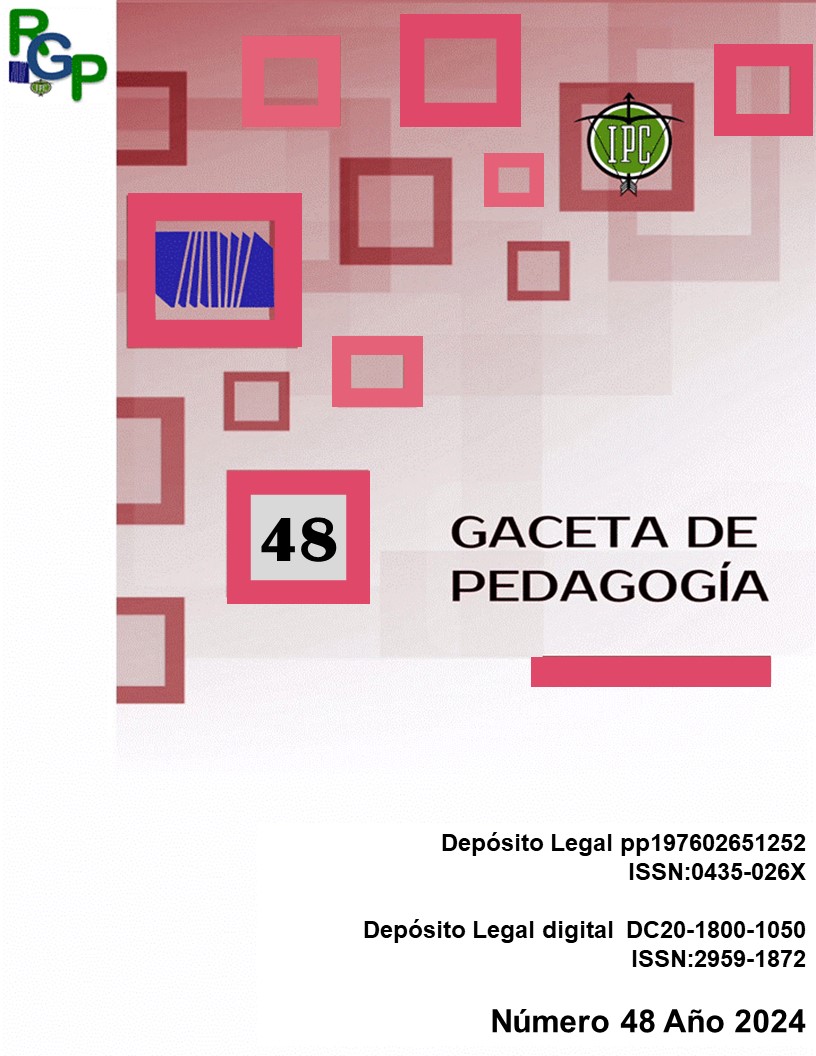Educational Model based on Spiritual Values for life, self-realization and transcendence
DOI:
https://doi.org/10.56219/rgp.vi48.2438Keywords:
Self-realization, Self-knowledge, Spiritual Values, Educational Models, Pedagogy of Being, Continuing EducationAbstract
Spirituality is the quality proper to the transcendent nature of human beings that defines their meaning and purpose in life. Education plays a fundamental role in this mechanism of self-know-ledge and self-realization since its purpose is not only educare -to instruct, to train- but also educere -to bring to light, to bring out-. In this regard, the present research developed a model that operationalizes the spiritual through values centered on self-know-ledge and emancipation of the Self, and incorporates the actors of the educational process as active participants in the process within the framework of lifelong education. The design was nourished by successful references in the world where pedagogical practices develop qualities that promote integrity and autonomy. It was concluded that this proposal can be validated as long as it evidences internal and external transformation of those involved, in the institutions and spaces of the society of which they are part.
References
Andrade, B., Guadix, I., Rial, A. y Suárez, F. (2021). Impacto de la tecnología en la adolescencia. Relaciones, riesgos y oportunidades. Madrid: UNICEF España.
Bass, R. and Good, J. (2008). Educare and Educere: Is a Balance Possible in the Educational System? https://files.eric.ed.gov/fulltext/EJ724880.pdf
Burguet, M. (2014). Pedagogía y espiritualidad: hacia una propuesta abierta e integradora. Educación Social. Revista de Intervención Socioeducativa, 56, p. 60-74.
Caballero, C. (2017). Pedagogía de la Significación y Pedagogía del SER. AbacoenRed https://acortar.link/gC7IR1
Díaz, N., Horton, E. y Malloy, T. (2014). Attachment Style, Spirituality, and Depressive Symptoms Among Individuals in Substance Abuse Treatment. Journal of Social Service Research, 40:3, pp 313-324
Erenchinova, E. y Proudchenko, E. (2018). Spirituality and Moral Values. SHS Web of Conferences. https://doi.org/10.1051/shsconf/20185001050
Fortune Business Insights (2019). The global antidepressants market size. https://www.fortunebusinessinsights.com/antidepressants-market-105017
Galiana L., Oliver A., Gomis C., Barbero J., Benito, E. (2014). Cuestionarios de evaluación e intervención espiritual en cuidados paliativos: una revisión crítica. Med Paliat. http://dx.doi.org/10.1016/j.medipa.2013.02.003.
Harlos, K. (2000). Toward a Spiritual Pedagogy: Meaning, Practice, and Applications in Management Education. Journal of Management Education, Volume 24, Issue 5 https://doi.org/10.1177/105256290002400506
Morduchowicz, R., Tedesco, J.C. (2006). El Papel de los Medios de Comunicación en la Formación de la Opinión Pública En Educación. UNESCO- Sede Regional Buenos Aires. https://acortar.link/ZaJfpY
Oficina de las Naciones Unidas contra la Droga y el Delito - UNODC (2020). Informe Mundial sobre las Drogas 2020 de la UNODC. https://acortar.link/7XctZE
Organización para la Cooperación y el Desarrollo Económicos-OECD (2019), PISA 2018 Results (Volume I): What Students Know and Can Do, PISA, OECD Publishing, Paris. https://doi.org/10.1787/5f07c754-en.
Organización Mundial de la Salud -OMS (2023). Depresión. https://acortar.link/qwc441
Finnish National Board of Education (2003). National Core Curriculum for Upper Secondary Schools https://acortar.link/VGh3k5
Peri G., F. (2021). Epistemología de la Espiritualidad. Revista de Investigación Nº 103 Vol. 45, Mayo-Agosto, pp 13-38.
Puga Cobá, y otros (2023). Espiritualidad y educación. Espiritualidad, nuevo paradigma para todo Modelo Educativo. Ciencia Latina Revista Científica Multidisciplinar, 7(2), 3551-3581.
Rindermann, H. (2007). The g‐factor of international cognitive ability comparisons: the homogeneity of results in PISA, TIMSS, PIRLS and IQ‐tests across nations. European Journal of Personality, 21(5), 667-706.
Rovira, Á. (2017). Capacidades y Creencias. https://acortar.link/v8sVeN
Team MRM (July 23, 2023). "Education System in China: History, Structure, Development, Reforms, and Challenges." in Domain of Mizanur R Mizan. https://acortar.link/YBY6QX
Tirri, K, (2011). Holistic school pedagogy and values: Finnish teachers’ and students’ perspectives. International Journal of Educational Research, Volume 50, Issue 3, pp. 159-165.
UNESCO (2020). Global Education Monitoring (GEM) Report 2020. https://www.unesco.org/en/articles/global-education-monitoring-gem-report-2020
WHO (2019). Suicide in the World. Global Health Estimates. apps.who.int/iris/bitstream/handle/10665/326948/WHO-MSD-MER-19.3-eng.pdf
Published
How to Cite
Issue
Section
License

This work is licensed under a Creative Commons Attribution-NonCommercial-NoDerivatives 4.0 International License.

